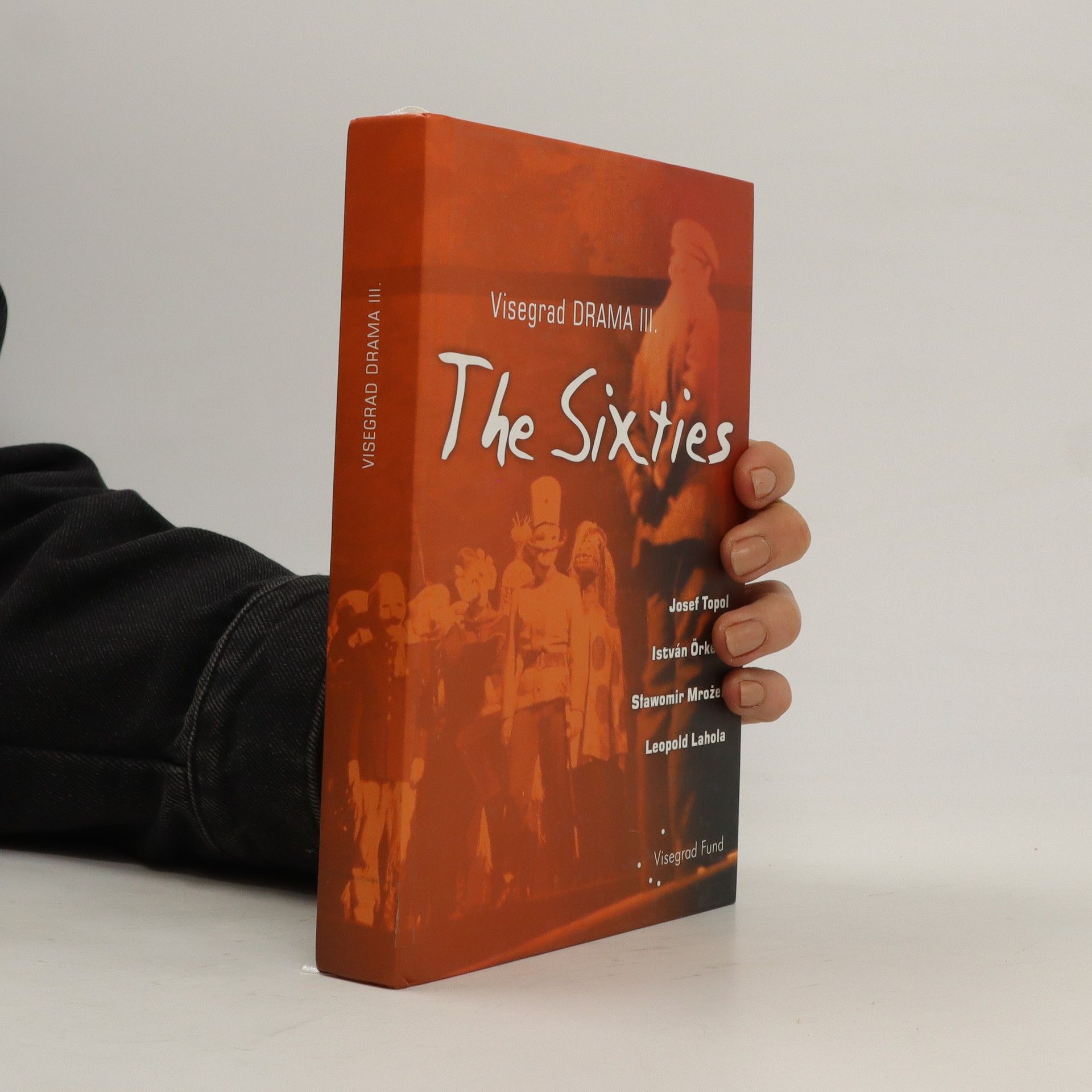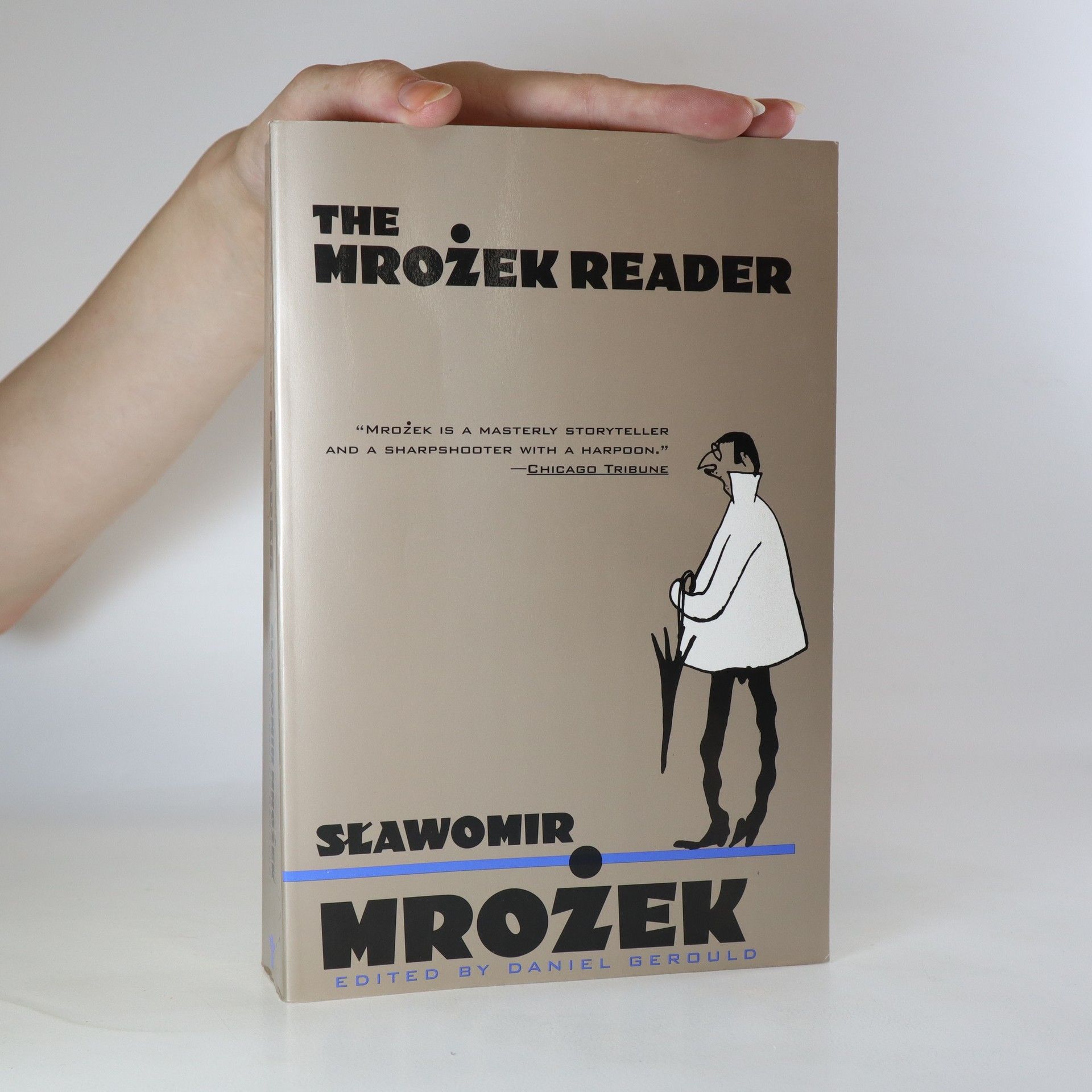Zbiory opowiadań Sławomira Mrożka zazwyczaj nosiły tytuł jednego z utworów. W prezentowanym zbiorze znajdują się wybrane opowiadania z różnych edycji, które pierwotnie ukazały się w trzytomowej publikacji z 1999 roku. Mrożek, niezależnie od dekady, trafia w sedno ludzkich rozterek, wątpliwości oraz przekonań, ukazując ich prawdę lub fałsz oraz ich przenikanie. Opowiadania budzą w Czytelniku poczucie, że wiele z tych historii mogło się zdarzyć również w jego życiu. Na przykład "Z ciemności", napisane kilkadziesiąt lat temu, brzmi jakby powstało w czasach wolnego rynku, gdzie nowoczesne operacje finansowe współistnieją z diabelskimi czarami. Z kolei "Peer Gynt" przywołuje skojarzenia z filmem o człowieku z marmuru, który powstał później. Proza Mrożka, choć krótka, jest pełna głębokich refleksji o nas wszystkich, zarówno wczoraj, jak i dziś. Zbiór zawiera różnorodne opowiadania, od "Półpancerze praktyczne" po "Rewolucja bis", ukazując bogactwo tematów i stylu autora.
Sławomir Mrożek Book order (chronological)
Sławomir Mrożek was a Polish dramatist and writer whose works belong to the Theatre of the Absurd. His plays often employ non-realistic elements, political and historical references, distortion, and parody to shock audiences and provoke thought. He became known for influential pieces that, despite their bitterness and irony, offer profound insights into the human condition. Mrożek's distinctive style explores the absurdities of the world, seeking deeper truths within them.






Olbrzymia dawka humoru, szczyty urzędniczych absurdów opisanych w mistrzowskim stylu. Zbiór wszystkich opowiadań Sławomira Mrożka, któryc h głównym bohaterem jest Prezes, a towarzyszą mu różni skromni współpracowni cy jak Referent, Księgowy, Magazynier, Kasjer, Radca. Przeczytamy o Kanceliście, który w akcie rozpaczy po tym, jak rzuciła go narzeczona, decyduje się na wyprawę w celu Uporządkowania Spraw Niezałatwionych, o próbie nawiązania kontaktu ze zmarłym Kancelistą, z którego śmiercią zniknęły wszystkie pieniądze, o zatrudnieniu emeryta, żeby udawał na cokole pomnik Mickiewicza, o tym, czy Prezes był już w Starożytności i nazywał się Prezus... Wspaniałe przykłady efektywnego współdziałania ludzi szanujących autorytet (Prezesa) i starających się rozwiązywać skutecznie problemy (Prezesa).
Wyjątkowa autobiografia Sławomira Mrożka w nowym wydaniu! „Sławomir Mrożek w słowie wstępnym i zakończeniu tej książki powiada, iż spisywanie wspomnień podjął w celach terapeutycznych. Chodziło o to, aby za pomocą metodycznego drążenia pamięci i przelewania na papier zawartych w niej przeżyć, obrazów i myśli pokonać afazję (utratę zdolności posługiwania się językiem, zarówno w mowie, jak w piśmie), którą został on dotknięty w wyniku udaru mózgu. Baltazar vel Sławomir Mrożek dokonuje w tej książce bilansu swego życia („liczy”) i ocenia samego siebie („waży”). Ponieważ zaś nie posiada żadnego królestwa i nie ma czego dzielić, d z i e l is i ętym, co ma, czyli swoją mądrością. A mądrość ta powiada: to, co nas scala, to pamięć i mowa. Oto jedyne królestwo człowieka.” ze wstępu Antoniego Libery
Wybór tekstów Sławomira Mrożka, w którym śmierć (cóż za niepraktyczna forma!), oniryczność i wątki metafizyczne splatają się w jeszcze jeden obraz galerii Mrożkowego absurdu i przenikliwego spojrzenia na ludzką naturę. Tym wydaniem chcemy uczcić 10 rocznicę śmierci niezrównanego pisarza, dramaturga i rysownika.
Ti, co mě nesou
- 308 pages
- 11 hours of reading
Výbor povídek od jednoho z nejznámějších polských spisovatelů a dramatiků.
Uwagi osobiste
- 147 pages
- 6 hours of reading
Dlaczego potrzebne są stereotypy? Czy można nie być nigdzie? Co ma wspólnego czat z sądem kapturowym? Czego można się nauczyć od starego trapera? Anegdoty, wspomnienia i przypowieści, czyli osobisty komentarz Sławomira Mrożka do rzeczywistości przełomu wieków oraz polskiej polityczno-mentalnej transformacji. Teksty te ukazywały się na łamach ?Gazety Wyborczej? w latach 1997-2002.
Le cahier dessiné N° 9, mars 2014
- 330 pages
- 12 hours of reading
Le loup de Kiki Smith tient un gant rouge entre les dents ; Pierre Alechinsky repense les images du penseur qu'Asger Jorn avait collectées ; Paul Roussopoulos, mathématicien et physicien, dessine ses peintures à l'aide d'un clou ; des gens anonymes se reconnaissent dans des portraits imaginaires et troublants peints par Kamagurka... La peinture se mêle au dessin qui se mêle et se heurte à la sculpture ou à l'installation, dans un jeu de hasard et de rigueur, de gravité et d'humour. Paul Nizon, Delfeil de Ton, Rainer Michael Mason, Roger Knobelspiess, Caroline Lamarche, Hector Obalk, chacun dans son art, participent à ce joyeux éclectisme où se devine un ordre secret. Plus que le talent et la virtuosité, ce Cahier propose un vaste état des lieux de la surprise.
Ein Karneval mit illustren Gä Adam und seine Gattin Eva. Goethe, begleitet von Gretchen. Ein Jedermann namens Joe, ein Bischof und der Satan. Und eine geheimnisvolle Dame. Mrozeks letztes Stück ist ein erotischer Reigen quer durch Zeiten und Realitätsebenen, federleicht und philosophisch.
Dziennik Tom 2 1970-1979
- 860 pages
- 31 hours of reading
Drugi tom 'Dziennika' Sławomira Mrożka obejmuje lata 1970-1979, kiedy pisarz przebywa na emigracji, podróżując po Europie, Stanach Zjednoczonych i Ameryce Południowej. Zaskakujący obraz Mrożka wyłania się z jego szczerych zapisków, w których opisuje swoje grzechy, kompleksy oraz chwile spędzone z winem i whisky. Krytycznie ocenia sytuację w Polsce, ale także przeżywa chwile radości, jak wybór Karola Wojtyły na papieża. Jego osobiste notatki ukazują go jako kochanka, który często porzucał i był porzucany. Dziennik ten to także źródło wiedzy o genezie jego dzieł, w tym słynnej sztuki 'Emigranci', w której Mrożek analizuje książki i dyskutuje z innymi pisarzami oraz filozofami. Wydanie pierwszego tomu 'Dziennika' było ważnym wydarzeniem literackim 2010 roku, zdobywając nagrodę czytelników Nike 2011. Mrożek, obserwując świat przez lornetkę, notuje: 'Świat przeszkadza mi w życiu', co podkreśla jego wewnętrzne zmagania. Dziennik Mrożka to nie tylko historia jednego pisarza, ale także całej generacji intelektualistów z wschodniej Europy, stających przed dylematem tożsamości i wolności. Jego szczerość i gorycz czynią te zapiski jednym z najbardziej gorzkich świadectw dążenia do wolności.



